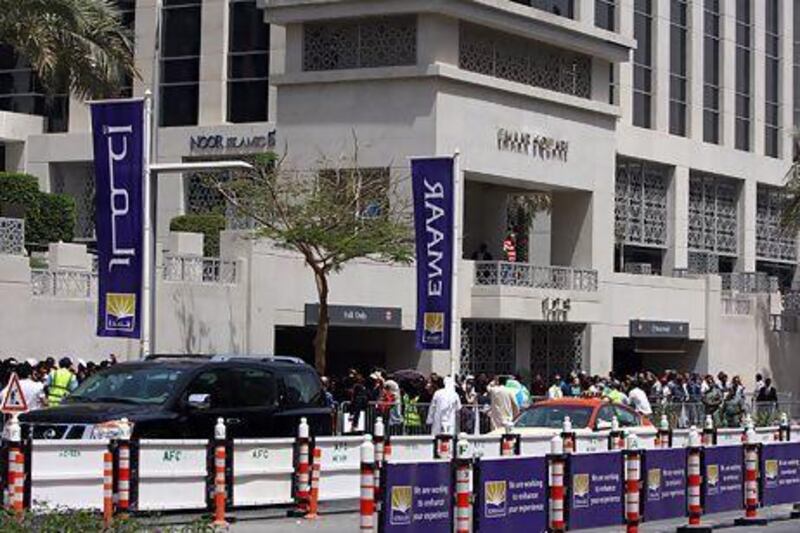The Central Bank's controversial plan for a cap on mortgages may do little to discourage property speculation, as signs emerge of "flipping" returning to the Dubai market and buyers rushing to the emirate from overseas.
But the plans could force buyers to think more carefully before jumping into the property market, bankers said.
Plans for loan-to-value limits on mortgages were drawn up by the Central Bank in an apparent attempt to cool the property market, but resisted by lenders who feared the collapse of demand for home loans.
Lobbying from the UAE Banks Federation led to a postponement of the mortgage cap, although the plans remain in discussion at the Central Bank.
But bankers have said that the cap was unlikely to halt speculative purchases, which have returned to the Dubai market in force this year.
"Speculation is not driven by people taking out mortgages. It's driven by people with cash," said Tom Smith, the head of retail banking at United Arab Bank.
However, the Central Bank's regulation on mortgages could force some buyers to be more cautious before plunging into the market, he added. "No amount of regulation is going to stop speculation... All it can do is bring a sense of sanity to everything."
The warning comes amid evidence that speculative buying with the intent of speedy resale - also known as "flipping" - is returning to the Dubai market.
The Dubai headquarters of Emaar Properties was the site of chaotic scenes last weekend as a sale of 188 town houses in its Mira development was mobbed by buyers seeking to take advantage of prices as low as Dh988,888, (US$269,231) allocated one per person on a first-come, first-served basis.
Buyers queued at Emaar Square for days in advance, with many leaving empty-handed.
But within less than 24 hours, properties snapped up at Emaar Square were available for resale online at Dubizzle.com, with markups of about 37.5 per cent on their offer prices.
Munir Ul Haq, the managing director of OSS Properties, which is reselling four properties online, said he had spoken to many overseas buyers who had travelled to Dubai specifically to stand in line at Emaar Square.
"I've met a lot of people who were disappointed to land late in the country, they couldn't get through to purchase these properties," he said.
A number of inquiries had come from buyers in India, Pakistan, Iran and China, he added.
Emaar's latest property sale for apartments in Burj Vista has switched back to an online registration for its latest sale.
The move towards more stringent regulation of retail banking was apparent across the Arabian Gulf as regulators tighten lending rules with the aim of protecting consumers, said Sanjay Malhotra, the head of retail banking at National Bank of Kuwait.
"Consumer protection is in vogue," he said. "All of us … have faced regulators with new regulations which restrict demand, cap prices and demand more transparency."
The UAE's mortgage law was "a very clear attempt to lower demand", he said.
Property agents have pointed to a large number of cash buyers in the Dubai market during the first quarter of this year, pointing to demand from wealthy investors rather than prospective homeowners, as property prices rise across the board.
"For the first time since mid-2008, all sectors of the Dubai real estate market are positioned in the recovery stage of their market cycle in Q1 2013," Jones Lang LaSalle said in a research report this week.
But bankers said that with the property market recovering and memories of the property crash fading, buyers should be aware of the possibility of another slump in values.
"People have got to remember 2009 and be sensible, and realise that the very same thing can happen again," Mr Smith said.





